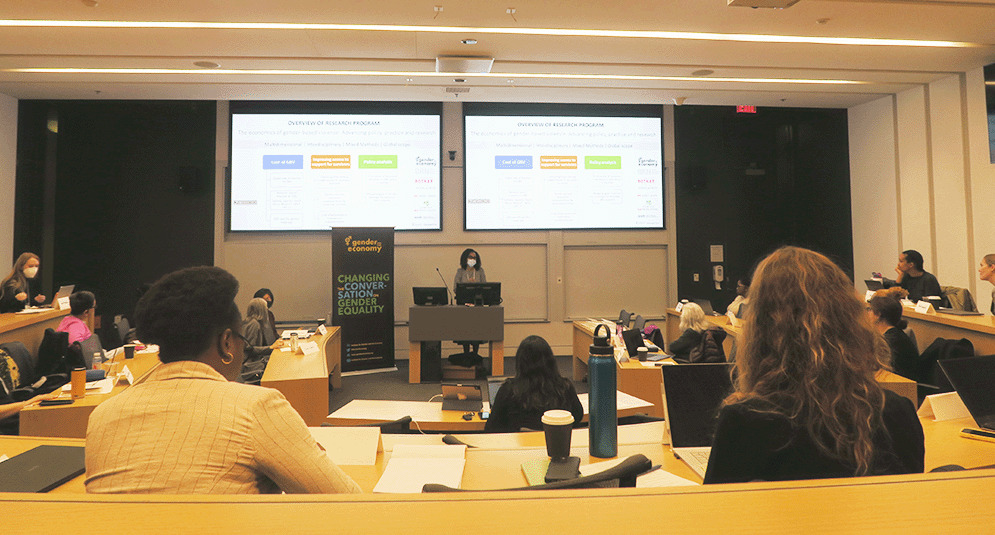On Nov. 1, GATE held a research roundtable with researchers and practitioners who are working to combat gender-based violence. The roundtable laid the groundwork for future collaboration on innovative interventions that will help society prevent and address GBV, which was exacerbated by the COVID-19 pandemic. We were grateful to co-host the event with U of T’s Institute for Health Policy, Management, and Evaluation (IHPME) with funding from the Institute for Pandemics.
Below are the key themes emerged from the presentations and lively discussions:
- All types of GBV (e.g., physical, sexual, emotional, economic, and legal abuses; digital control) have persistent and damaging consequences (e.g., physical health, mental health, jobs, wages, mobility, ability to care for others, and more)
- The traumas caused by GBV accumulate quickly (e.g., brain trauma → mental health issues → inability to work → economic stress → mental stress) and spill over to affect children, families, communities, and economies
- GBV-related stress is amplified by precarious immigration status, poverty, and disability
- Gatekeeper biases—by police, judges, primary care and emergency doctors —reduce survivors’ ability to access help
- There are multiple ways of learning about GBV (e.g., personal stories, Indigenous knowledge, community-based research, and scholarly studies)
- We need better data to understand GBV, especially among Black, Indigenous, immigrant, non-binary, and trans people
- Funding to fight GBV must extend beyond services—more funding is needed for advocacy, research, and training
- Preventing GBV requires disruption of social, cultural, political, and economic norms and expectations







